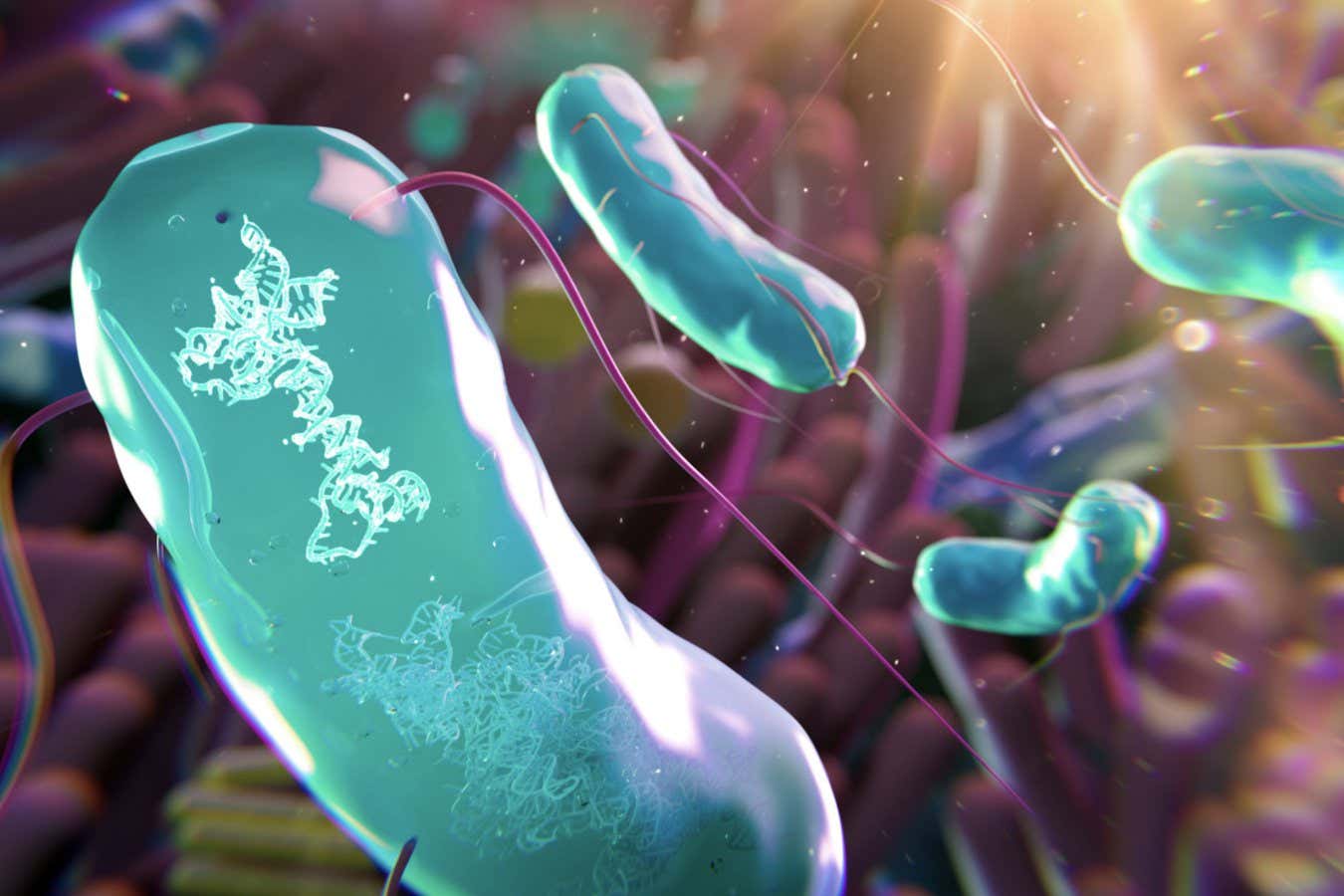Researchers have genetically engineered gut microbes to absorb compounds that contribute to kidney stones – and to thrive in the competitive gut microbiome
By Grace Wade
17 July 2025
The human gut microbiome has a big influence on health
Science Photo Library/Alamy
Genetically engineered gut bacteria can break down the compounds that contribute to kidney stones. Tailoring bacteria to tweak the gut microbiome in this way could go beyond treating kidney stones and lead to new treatments for a range of conditions, including inflammatory bowel disease and colon cancer.
“The gut microbiota has a big influence on our health and being able to manipulate that is a promising avenue,” says Weston Whitaker at Stanford University in California. But previous attempts to do so ran into a problem. Bacteria introduced into the gut, whether those are naturally-occurring probiotics or genetically modified strains, often struggle to colonise the large intestine, because they have to compete with existing microbes.
Read more
The shocking discovery that our gut microbiome drives ageing
Advertisement
So Whitaker and his colleagues took a slightly different approach. They genetically modified a bacterium already abundant in most people’s guts, called Phocaeicola vulgatus. “We wanted something that was going to be compatible with colonising the gut,” he says.
The team made three genetic changes. The first enabled the bacterium to break down compounds in food called oxalates, which contribute to kidney stones. The second allowed it to digest a carbohydrate found in red seaweeds known as porphyran. This gave the bacterium a competitive edge over existing gut microbes, most of which cannot utilise porphyran. The final tweak made a gene essential for the bacterium’s survival dependent upon porphyran. Together, these changes allowed the researchers to control the growth of the microbe – adding porphyran encouraged the bacterium’s spread, while restricting porphyran killed it off.
The researchers fed 12 rats a high-oxalate diet for four days, then treated half of them with the genetically modified bacteria and the other half with a strain that couldn’t break down oxalates. Porphyran was added to all of the animals’ daily diets. After six days, the rats treated with the engineered bacteria had, on average, 47 per cent less oxalate in their urine compared with the control group.
